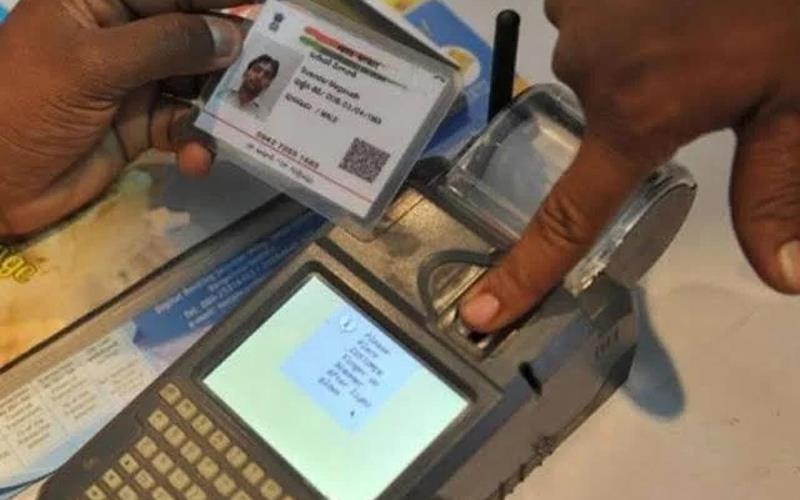In J&K, 1.27 lakh fake ration cards removed during digitisation drive
Arteev Sharma. Updated: 12/18/2024 12:33:22 AM
Front Page

Jammu: The Union government today revealed that it has removed over 1.27 lakh bogus ration cards in Jammu and Kashmir through Aadhaar-based authentication and eKYC verification as part of a nationwide digitisation drive aimed at transforming the Public Distribution System (PDS).
Responding to a question raised by Congress MP Neeraj Dangi in the Rajya Sabha regarding the cancellation of fake ration cards, Minister of State for Ministry of Consumer Affairs, Food and Public Distribution, NimubenJayantibhaiBambhaniya said, “As many as 1,27,872 ration cards were deleted in Jammu and Kashmir between 2013 and 2024 (till date)”.
“In Ladakh, a total of 702 ration cards were identified as bogus and removed from the system during the digitization process,” the minister further said.
Highlighting the broader impact of technological interventions, the Union Minister also revealed, “As an outcome of the use of technology in TPDS operations since 2013, i.e., digitization of ration cards/beneficiary databases, Aadhaar seeding, de-duplication process, identification of duplicates, ineligible records, deaths, permanent migration of beneficiaries, etc. all States/UTs have been able to weed-out approx. 5.87 crore ration cards between 201 3 to 2024 (till date) in order to achieve rightful targeting”.
At present, 99.8 percent of ration cards under Pradhan Mantri Garib Kalyan Anna Yojana (PMGKAY) have been seeded with Aadhaar number of at least one member of the beneficiarv household, she said.
The minister, however, said that the States and UTs have been advised to undertake proper verification (including field verification) of each identified case to ensure that ration cards of genuine beneficiaries are not deleted.
“Further, States/UTs continuously issue new ration cards to the genuinely eligible households/beneficiaries in place of cancelled ration cards under ceiling limit of the National Food Security Act (NFSA), to achieve the rightful targeting of subsidised foodgrains,” she said.
Pertinently, the e-PoS devices at Fair Price Shops enable Aadhar authentication of beneficiary during distribution process enabling principle of rightful targeting. About 98 percent foodgrain distribution is being done through Aadhaar authentication, reducing leakages to ineligible beneficiaries and ensuring rightful targeting.
The digital transformation encompasses the entire PDS chain from procurement to distribution, ensuring targeted delivery to genuine beneficiaries while eliminating ghost cards and fake entries from the system.
Updated On 12/18/2024 12:41:22 AM